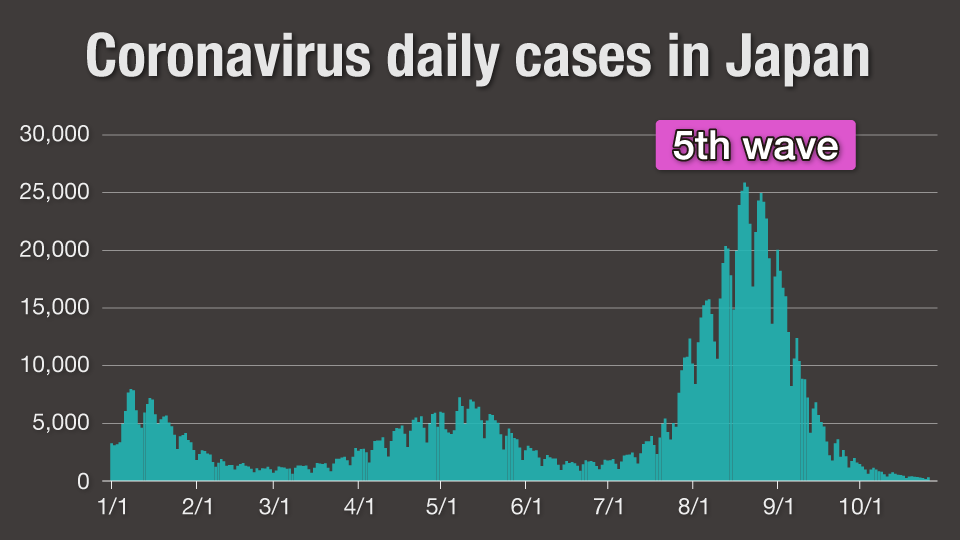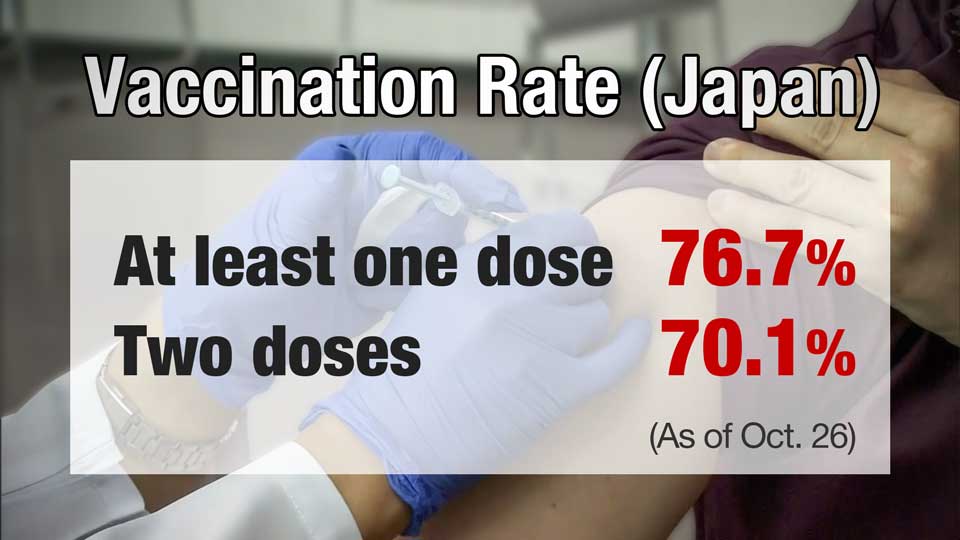Showa University Hospital in Tokyo has been treating coronavirus patients, including those in serious condition. Over the summer, as Japan's infections spiked, so did the number of seriously ill patients arriving at the hospital. Many of them were relatively young and otherwise healthy. The hospital, pushed to its limit, doubled the number of beds it reserved for severe cases.
Hospital director Sagara Hironori says they were worried that if the situation got any worse, they wouldn't have coped, "and there was an extremely high level of exhaustion among nurses and other staff."
The hospital was forced to suspend some other services and was unable to admit patients who had suffered heart attacks or strokes.
Japan's situation has improved since then. But with winter looming, there are fears that infection numbers could rebound.
More than 1.7 million people across Japan have been infected so far. Over 18,000 have died. That figure includes many who never made it to a hospital.

Sagara says Japan needs a better system, where they don't have to turn away people with mild symptoms. He says there were many instances of people trying to recuperate at home whose condition suddenly took a turn for the worse.
"I don't think we should have patients with mild symptoms trying to recover at home without treatment," he says. "The best way to ensure our medical system doesn't get overwhelmed is to prevent people with mild symptoms from developing serious symptoms."
While Japan's vaccination rollout had a slow start, more than 70 percent of the population has now had both jabs.
The ruling coalition maintains the relatively high vaccination rate - and low infection numbers compared to some other countries - are the results of its policies. But opposition parties say the government's responses always come too late. They say some of the lives lost could have been saved.

Taniguchi Kiyosu is an infectious disease expert on a panel advising the government on coronavirus policy. He says whoever is in power next should develop a clear strategy, with precise goals, based on scientific evidence. And he says it's essential they manage crisis communication properly to bring the public on board.
Taniguchi also wants the new government to introduce long-term measures against not only the coronavirus but also any future infectious disease outbreaks.
"I think the government needs to create a system that allows the rapid development of vaccines and medicines for new infectious diseases, and they should create a system that ensures their decisions are based on proposals from experts."
All the major political parties are promising stronger measures to bolster the medical system, but they will also be tasked with bringing the economy back to health. Both outcomes come with a heavy responsibility for the candidates that the Japanese people elect to do the job.

